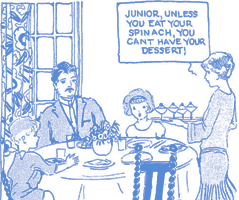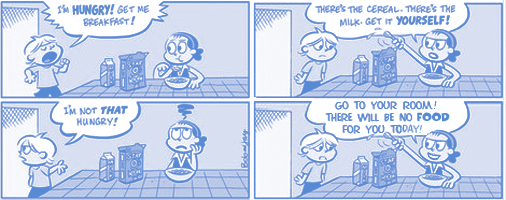

|
Maslow placed these needs at the bottom of his hierarchy. Most of these needs are the obvious ones needed for survival. These needs, if not satisfied quickly lead to death. We need air. If our need for air is not satisfied a few moments after birth we die. We need to eliminate waste. If we do not we die. We need water. If our need for water is not satisfied we die. We need food. It takes a bit longer but if our need for food is not satisfied we die. We need shelter from the heat, the cold, the rain, the snow etc. If this need is not satisfied likewise we die. This is true of all physiological needs except one, the sexual need. These needs although similar, press on us very differently depending on our circumstances. Air is normally all around us. We have an endless supply of it. So it is satisfied easily and regularly in normal human beings. We are hardly ever even aware of the need for air. We become aware of the need for air when we are deprived of it. When this need is apparent, it usually means death is close from asphyxiation. Yet we also know that humans can have great control over this need. This is because this need is normally regularly satisfied. The whole process of swimming under water would be impossible if we did not have other needs more pressing at least for short periods of time.  Other physiological needs are less immediately life threatening yet may press on us more urgently and often. Because food is not easily acquired, we may have to learn a great many things to provide ourselves with it. It is far more pressing, as a need, because it requires learning. Without the need to know we would never learn how to provide ourselves with food. Then again if we have good and loving parents they will feed us, at least while we are young. This is true for all physiological needs except one. If we have good parents they will feed us, clothe us, shelter us and give us water. In this way all these physiological needs can be satisfied easily and on a regular basis. Still we would never move further up Maslow's need hierarchy if we did not learn to provide ourselves with all these needs. The need to know far from competing with these needs becomes an essential part of our learning to provide these needs for ourselves so leading each person to be confident in his/her ability satisfy them. All these needs can usually be easily satisfied on a regular basis, as long as no personal disasters prevent us from learning to provide ourselves with them. As we learn all this our confidence in our ability to satisfy those needs ourselves gradually increases allowing those needs to weaken. As physiological needs become weak the next group of needs on the hierarchy (safety and security needs) become more pressing. This is true even while we are still learning how to satisfy those physiological needs. Learning how to satisfy the needs for food, water and shelter is quite complex and is not complete until we are working regularly and earning enough money to be able to provide for those needs. Higher needs. We all learn to control our elimination of wastes ignoring or putting off the need till it can occur at a socially acceptable place and time. We learn to do this because the needs for safety, love and esteem all become stronger than the need to eliminate. The fireman ignores his need for safety, shelter and to be cool in favor of esteem or higher needs. The arctic explorer ignores his need for safety, shelter and to be warm in favor of esteem or higher needs. The protester who fasts like Gandhi can be ignoring the need for food in favor of such high needs as the needs for truth or justice. These needs all follow a similar pattern. When life is being threatened they are strong, and weak when satisfied on a regular basis and when we feel confident in our ability to satisfy those needs. Sex. Sex is the one need that does not follow this pattern. The need for sex is not life threatening nor is the need for sex immediately active after birth. These two aspects of the need for sex are what this site holds to be very different to the other physiological needs. The need for sex (the need to reproduce or procreate) does not kick in until puberty. By this time many of the needs at all levels of the hierarchy may be being satisfied regularly and we may be confident in our ability to satisfy them. If a child is responding to needs high up the hierarchy when the need for sex first manifests itself it may well be that these needs can divert and postpone the need for sex till a time and place that is acceptable. This does not mean that such individuals are not interested in sex but rather able to see it as a simple pleasure like eating which will be satisfied at an appropriate time in the future and so does not manifest itself as a desperate need. It is possible however that many things can go wrong with the need for sex if high needs are not being responded to when the need for sex manifests itself. Sex is easily confused with and made part of the satisfaction of other needs. The nymphomaniac or Casanova are often trying to satisfy the needs for love or esteem. But these sexual activities do not lead well to the satisfaction of love or esteem. Men or women who are sexually violent are also perversely seeking an esteem that is an aberration, a form of dominance or power. Sex can be distorted in many ways. When other physiological or safety needs are not being met regularly enough sex may become a commodity sold to provide for those other needs. Thus we get the desperate prostitution of young children. In families where parents are bad or frustrated or are themselves perverted love may become conditional of sex in the form of incest. While these aberrations are not as rare as we would hope, the most normal problem with sex is simply the inability to find socially acceptable ways to satisfy this need or the inability to postpone it for a sufficiently appropriate time and place. Thus society gets its unwanted pregnancies. It may be that society asks too much of people as far as sex goes and the acceptability of prostitution should be considered. However, it can be seen that even complete celibacy is quite possible for people approaching self actualization. Two ways of needing. Is it possible that all needs can be separated into two aspects or types, one born of deficiency and one born of fulfillment. Maslow and many other writers on love, talk about two different kinds of love. A love that comes from desperation and a love that comes from fulfillment. Learning, as suggested previously, also can be separated into two needs that are qualitatively different. What then about the physiological needs? Consider the person who is very hungry or starving. He wolfs his food down quickly and shows few signs of pleasure and shows mostly signs of relief. The gourmet, who's hunger is well satisfied regularly and is very confident in his ability to satisfy this need, eats slowly taking pleasure in each variation of taste on his tongue. There is of course a physical mechanism involved with eating called hunger which diminishes when we eat. We can overcome this by purposefully abstaining from eating in order to be hungry, but we do this only in moderation because it is debatable whether it really does make food more enjoyable. We do need to be hungry to need food but we do not need to be very hungry. How we enjoy food when we are sure of its provision is quite different to how we enjoy it when we are desperate for it. In a society of abundance we often eat more than is good for us because it is enjoyable despite the fact that we are not very hungry. Consider people drinking who seem to greatly enjoy the sensation of liquid in their mouths. They are often not overly thirsty and their thirst is regularly satisfied and the are very confident in their ability to satisfy this need. Perhaps even, we may only learn to really enjoy something after the deficiency need for it has mostly diminished. For if it has been satisfied regularly, we are confident of its continuance. Another example? What about air? We are normally not aware of enjoying air but we can be sure the person who is drowning who at last gets a lung full of air does not stop to savor it. All he feels is a massive relief. But through awareness, we know we can come to enjoy breathing as in when we move from industrial air to country air. What about sex? When our need for sex is in a state of deprivation, we may get some pleasure out of sex but clearly what we feel mostly is a sense of relief. On the other hand people who have had their need for sex satisfied on a regular basis and are confident of satisfying it themselves may be able to reach a profound level of sexual enjoyment. Maslow was greatly concerned about the fact almost all theories of motivation before his own, rested on the assumption that the primary aim of an organism was to get rid of the annoying motivator. Theorists assumed that drives pressed toward reduction and their own elimination. Maslow showed again and again that this is not the case. He showed that organisms satisfied a series of hierarchical needs sometimes to eliminate them and sometimes simply for the pleasure they provide and almost always is a mixture of both. Thus his view of behavior can look at needs as being a satisfaction of a deficiency as well as or the acquiring of pleasure. Are there two needs for food? Surely we do enjoy food despite not being hungry and certainly we enjoy food despite our easy access to it. Surely one is related to hunger and other bodily signals and one is related to our anticipation of the sensation on our taste buds? Are there two needs for drink? Can one be related to thirst and the other be related to our anticipation of pleasure in our smell and taste? Climbing the Hierarchy. As previously stated, Maslow's theories about how humans move from one level of need to another by the regular satisfaction of needs at one level causing these to become weak, and allowing the next level to become dominant. This has to be amended to include the mutual support of needs and the confidence we acquire in our ability to satisfy those needs ourselves. Mutual support. Not only is the need to know supportive of all other needs in that it enables us to learn how to provide for those needs ourselves but many of the other needs support each other. Clearly the needs for shelter and safety support one another, as do the needs for sex and love, love and esteem, esteem and meta needs. The need for food often supports love and belonging needs as in romantic dinners and social lunches. We drink alcohol mostly not to satisfy thirst but as a social lubricant. Needs do not have to be either or. They do not have to conflict in any way and they indeed do not. One need does not have to go away so the other can be noticed they can easily be active together, supporting one another. In fact the various needs only very occasionally find themselves pulling in different directions at all. For the most part needs are supportive of other needs and only rarely do two needs pull us in opposing directions. Confidence in our ability to satisfy our own physiological needs. Although it is not a matter of one need replacing another it is necessary that one need level becomes less pressing so we can become more concerned with the next level up. Confidence in our ability to fulfill our own physiological needs is key to progressing up the hierarchy to become more concerned about safety. Otherwise one would expect that every time we got hungry or thirsty and the needs for food and water returned, it would return at a strength equal to its previous appearance. This does not happen because the person involved is normally confident of his/her ability to satisfy that need and it is thus weakened. Similarly it would seem likely, that every time the need for air returned it would return at equal strength to its previous appearance. This does not occur however. Maslow seemed to imply that if a physiological need was being satisfied on a regular basis it would weaken and we would become more concerned about safety and security. This is true to some extent but the moment we no longer have those needs satisfied on a regular basis they do return with a vengeance unless we become confident of our ability to satisfy those needs ourselves. The Role of Parents and Society as Regards Physiological Needs. Parents, society, and the institutions of society have a distinct and similar role to play in the satisfaction of people's physiological needs. The role of parents is to be a good parent and all that entails for the satisfaction of their children's physiological needs. A good parent firstly satisfies directly the physiological needs of those in their care while they are babies and unable to satisfy their own physiological needs. Letting go. But secondly and more importantly their role is to act as facilitators in enabling those in their care to learn the skills that are needed to satisfy their own physiological needs. Not only that, but a good parent is able to perceive when the child needs to try to do it by himself, when only advice is needed and when the child no longer needs any help at all. The good parent should want to satisfy his child's physiological needs when the child cannot satisfy his own needs, but the good parent should want more for the child to learn how to satisfy his own physiological needs. Also a good parent has to realize that his or her children know far better which physiological needs need to be satisfied. Unconditional.
These days we expect parents and other care givers to
feed, clothe and shelter the children in their care as a
mater of common decency. It might seem, therefor,
unnecessary to say that food, water and shelter (or any
of the physiological needs) should not be made
conditional by parents. But parents often feel they need
to punish their children. In this enlightened age
physical punishment is no longer acceptable, so
punishment usually takes the form of depriving the child
of something they desire. As this is not true
deprivation of physiological needs it is only
deprivation of wants. It is therefore probably an
acceptable way to punish. Of course finding ways to
socialize children without punishment at all would be
better. 
Indeed, this is a practice parents have long used to control their children and in their efforts to socialize them. It usually takes the form of depriving them of luxuries (things like TV time,the ability to go out or sweets) and not of the essential nourishment of food or water. 

 But here is the thing. In the past it was not unusual for parents to send their children to bed without supper and there is the famous incident in Oliver Twist where he asks for more food. The ancient workhouses of England were bad places where some or even all of the children went hungry. 
 This kind of conditional parenting may not be very bad in the way it affects children's physiological needs but it becomes very problematic as needs higher up the hierarchy become involved. Of course children are not above trying to game this whole idea of punishment and make it work for their own benefit as depicted in the cartoon below. 
If this is true for the good parent surely it should also be true for society and the institutions of society. Society and its institutions should supply our physiological needs when we are helpless to supply them ourselves. This means they should provide us with proper healthy nutrition when we are unable to get it for ourselves. They should build us shelters when ours are taken away by disasters. They should keep us warm or cool, when we cannot make ourselves so, and air/water should be free and normally is. But more importantly governments should also strive to enable us to learn the skills we need to satisfy our own physiological needs. If you think about it it is in the interest of governments to keep their citizenry well fed and healthy but only when they cannot do it themselves. Also they should be aware that we always know best what physiological needs are currently dominating our motivation and thus which ones need satisfying. This works quite well with most needs in the physiological group with the sole exception of sex. In most societies the need for sex is not supplied unless illegally and only now is something being done in our society about the facilitating of the skills needed to satisfy this need. Parents for the most part have to ignore the direct satisfaction of this need for those in their care and are generally uncomfortable with facilitating the formation of skills necessary for satisfying this need. It is not clear what should be done about this. |
Needs
Interest Method
Reality Keys
How to Help Creative
Genius Future What
is Wrong Theories Plus
Thin Slicing Expertise
Self Determination Answers
Iteration
 The needs for water, food, shelter, air,
warmth and coolness, elimination and sex
The needs for water, food, shelter, air,
warmth and coolness, elimination and sex